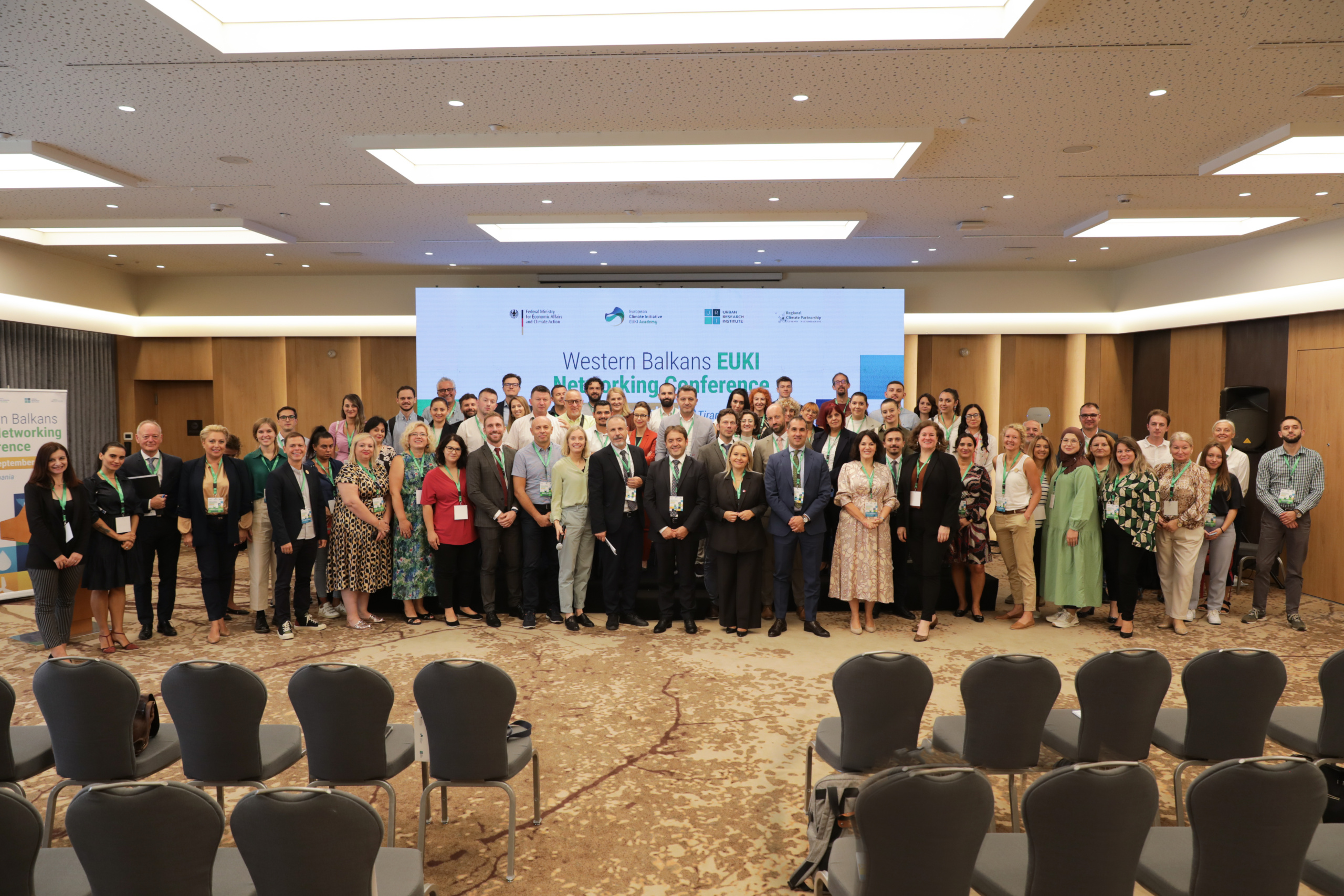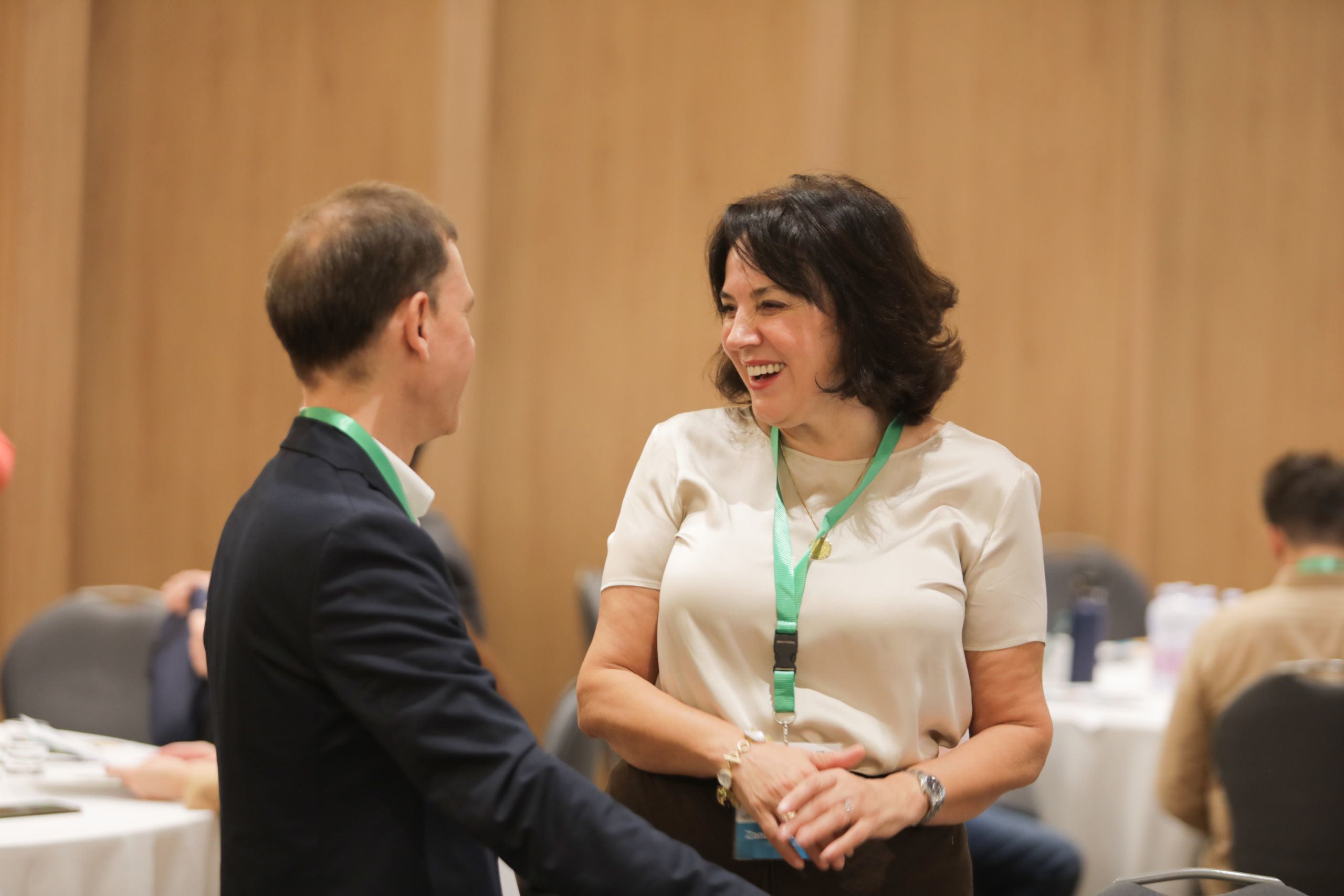Climate Action in the Western Balkans
by Oliver-Andre Hoelcke, GIZ / EUKI
The Western Balkan countries are striving to become candidates for EU membership and must also comply with the EU climate targets, including the obligations of the Paris Climate Agreement. With the signing of the “Green Agenda for the Western Balkans” (GAWB) in November 2020 and the GAWB action plan, the region has taken important steps. But how and by whom can the agenda and the plan be implemented specifically? At the Western Balkans EUKI Networking Conference, which took place from September 25th to 27th in Tirana, Albania, the “Climate Bridges Network” was officially launched, primarily to support civil society in forming a network.

The Climate Bridges Network was launched at the EUKI conference
At the event, organised by the EUKI Academy in collaboration with the Urban Research Institute (URI), the EUKI community, which represents a large part of civil society in the Western Balkans, was able to meet and exchange with high-ranking representatives of national governments. After an introduction to the topic of GAWB by Zana Vokopola, director of the URI, and the Albanian climate action expert Rezart Kapedani, the participants talked about what opportunities and stumbling blocks there are in the respective countries for moving closer to the EU climate goals. Participants from Croatia (EU accession in 2013) and Austria (EU accession in 1995) reported on their experiences and were able to provide important information. It was made clear to create a network of governments, industry, civil society and the academic sector in which underrepresented voices must also be heard.

The Climate Bridges Network, founded by the EUKI Climate Bridges project, will hold regular meetings and events together with civil society. Solutions for better climate protection are to be considered in the six Western Balkan countries as well as in Slovenia, Croatia and other neighboring countries. Under the guidance of Jakob Dietachmair, director of the Austrian NGO CIPRA International Lab, the participants discussed how exactly cooperation between civil society and the political level should be designed.
A regular exchange at eye level is important for everyone involved. A lack of basic funding from NGOs as well as irregular personnel changes in politics and administration were seen as a hindrance to long-term and independent work. In addition, the partial lack of interdepartmental cooperation and inadequate coordination between the local and national administrative levels in the area of climate protection prevent close involvement of civil society.
The Green Agenda takes center stage
In his opening speech, Dr. Heinz Hetmeier, Deputy Director General for European Policy in the Federal Ministry for Economic Affairs and Climate Policy (BMWK), talked about the urgency of cooperation between the EU and the Western Balkans and the indispensable contributions of the EUKI projects to climate action. In his subsequent keynote, Adam Cwetsch, head of the European Green Deal department in the Energy Community Secretariat, explained where the Western Balkans are in terms of aligning with the EU electricity market and what contribution civil society has to make:
“Acting as an advocate for green policies, for difficult decisions to be made, monitor progress, raise awareness, and mobilize communities to take action and responsibilities.”
Adam Cwetsch, Head of European Green Deal Unit, Energy Community Secretariat
The first panel discussion on the topic of countries’ commitment to the goals of the Green Agenda was highly attended. The Serbian Vice Minister for Environmental Protection Dusan Carkic, State Secretary Nebi Rexhepi from North Macedonia from the Ministry of Environment and Spatial Planning, the Albanian Vice Minister for Tourism and Environment Almira Xhembulla, Vice Minister for Environment, Spatial Planning and Infrastructure Avni Zogiani from Kosovo, as well as Vice Minister for Foreign Trade and Economic Relations Mirza Hujic from Bosnia and Herzegovina. They were all able to report on relevant laws and projects implemented in their countries.
In addition to EUKI project partners, Valbona Mazreku, who represented the EUCENA project, and Vedad Suljic, representative of Balkan Solar Roofs, Andrea Ferrero, head of Department II of the EU Delegation in Albania, and Adam Cwetsch from the Energy Community Secretariat took part in the second panel. They exchanged views on the measures already taken under the EUKI projects and the role the EU must play in this. Everyone involved could understand the frustration with inefficient decision-making processes and the lack of responsibility of the responsible institutions for the implementation of the GAWB action plan. The speakers agreed that insufficient capacity, especially in local administrations, as well as a lack of public awareness often hinder climate protection. Capacity building programs, multi-stakeholder engagement and targeted funding tailored to each country’s specific needs and gaps were identified as promising solutions.
The three-day conference ended with an excursion to the Gustav Mayer School in Tirana, where two projects on sustainable urban planning and home-use solar energy were presented. The “Sustainable Urban Transport” project created a safer, more walkable environment for children and a more climate-friendly traffic situation.
The “Sunny Schools Initiative”, on the other hand, installed a solar system on the roof of the school to enable an independent, sustainable energy supply.
Conference participants agreed that the Western Balkans EUKI Networking Conference made an important contribution to the discussion on how the Western Balkans can best make progress in implementing the Green Agenda.
Read and download the conference report summarising the Western Balkans EUKI Networking Conference 2023 in Tirana here.
